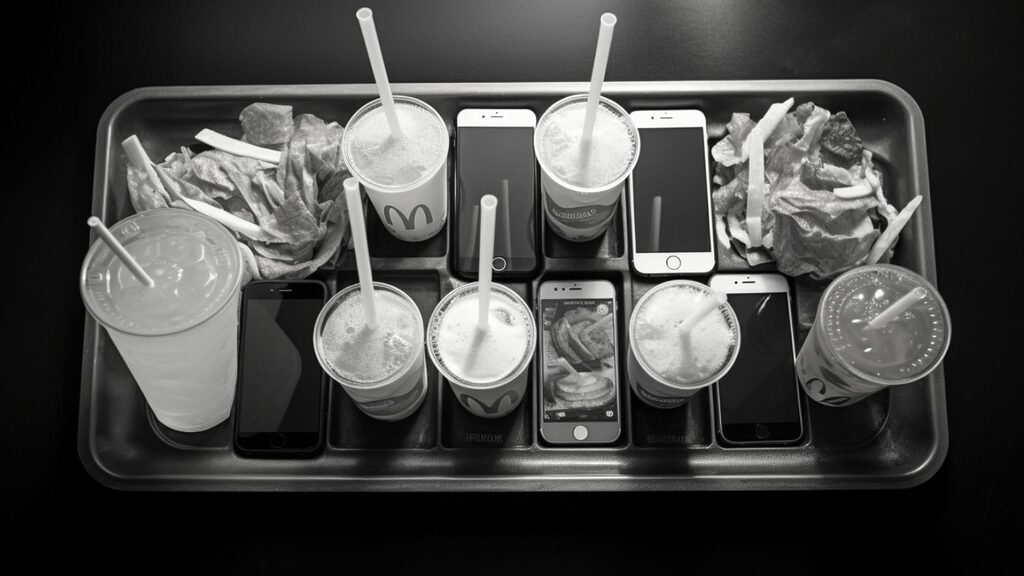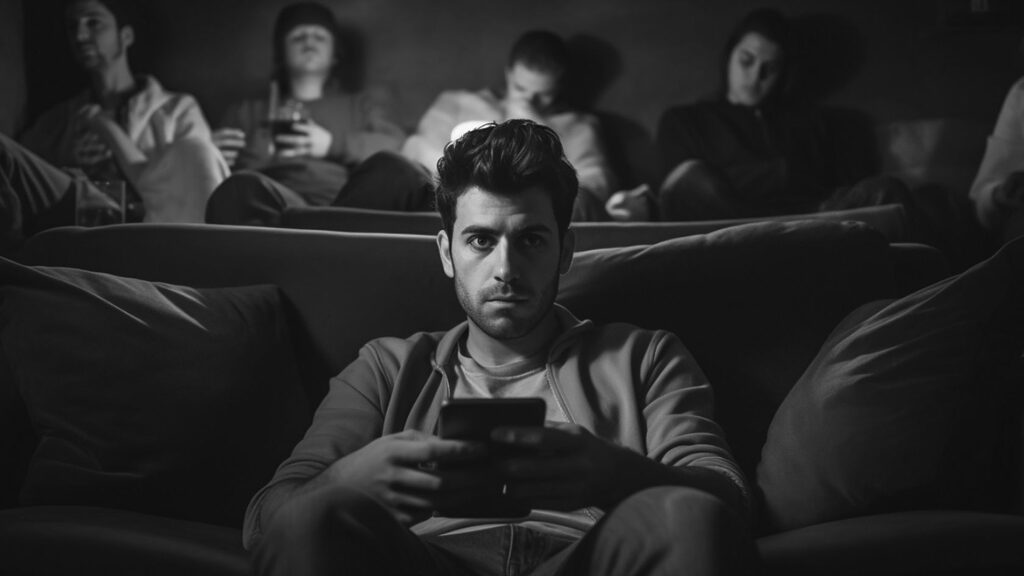The amount of information we try to process every day while browsing online is making us sick. In this article we try to shed light on infobesity and its consequences on our minds and relationships.
By now, the minutes free from stimuli during our day can be counted on the fingers of one hand. Wherever we go, physically or digitally, we are assailed by information that we process more or less consciously. This becomes evident especially when we spend an entire evening scrolling through our social networks, bouncing seamlessly between Whatsapp chats, Telegram channels, Instagram home and hundreds of videos on Tiktok.
We are constantly bombarded with an uninterrupted flow of information from a wide range of sources, giving rise to a phenomenon known as “infobesity”, which is increasingly relevant in daily life. Overwhelmed by an excessive amount of information, it becomes increasingly difficult to select, process and understand what is proposed to us at any given moment. So let’s explore what is meant by infobesity, how it affects our lives and how to avoid it.
An overabundance of information
Alvin Toffler, in his 1970 book “Future Shock”, already theorized about the abundance of information and the speed of change as the cause of several ever-growing problems among the population, anticipating the concept of “Future Shock”. The info obesity therefore comes from afar, exploding as with the digital revolution and growing global connectivity.
If in the past access to information was the prerogative of some areas and made complex by material and physical difficulties, today with the advent of technologies connected to the world everything we want is, at least apparently, within reach. Access to information has become virtually unlimited and in real time. In a few minutes we can get in touch with dozens of news and content ranging from politics to gossip from mere entertainment to educational content in a mix in which fake news, reality shows, cultural insights and influencer lives mix: an uncontrolled whirlwind that is increasingly difficult to stop.

Every day, hundreds of millions of articles, posts, videos, podcasts, and millions of other content are published, shared, and reshared. This overabundance tests our ability to discern what is relevant from what is not. As homo sapiens, in fact, we are not yet adapted to this new era, hyperhistory.
The consequences of info-obesity
Why should we regret the times when we knew less? This objection is among the first that are expressed when we deal with this topic. In fact, thanks to a constant connection, we feel more informed about the world around us.
However, we are neglecting some aspects that, in the long run, can cause serious difficulties. Research and studies have confirmed that infobesity has a significant impact on our psychological well-being, our consumption habits and our social relationships. Here are the main problems that emerge from an uncontrolled diet of digital stimuli.
Stress and cognitive overload
Every day in the workplace, we receive notifications, new updates, process tasks and plan future actions. Returning home we immerse ourselves again in a similar situation, uniquely different in content.
When we are constantly exposed to news, messages and data, our brain can struggle to try to process them all and often uses cognitive shortcuts, biases, which can mislead us. This use of resources over time can lead to a greater frequency of states of anxiety and mental fatigue.

Difficulty in decisions
We follow a user looking for a new product to buy online. We see him come across many mixed reviews on various sites, each claiming that a different product is the best. With so much conflicting information, it becomes extremely complicated to determine which product is really the best.
This same mechanism can also be repeated in more serious and delicate situations that influence political choices and current issues. With so many sources, establishing which ones are reliable and which are not becomes an additional challenge that risks producing indecision and procrastination.
Social isolation
Why confront someone directly when I can get the answers with a simple search? The overabundance of information does not only have personal effects, but also affects relationships. Getting lost in a sea of information can lead to the estrangement of friends and family, as they are less and less stimulating compared to the world offered by one’s smartphone.

Knowing to change
Infobesity has become one of the main dangers of our digital lives. Just like in a diet, it is essential to manage and regulate the supply of information to preserve our psychological well-being, improve our decision-making ability and maintain healthy social relationships.
Understanding the huge amount of data and content produced every day is one of the first approaches in our Digital Detox Design projects. If you want to learn about and deepen this topic within your company, we can develop a personalized path for your digital wellbeing needs.
